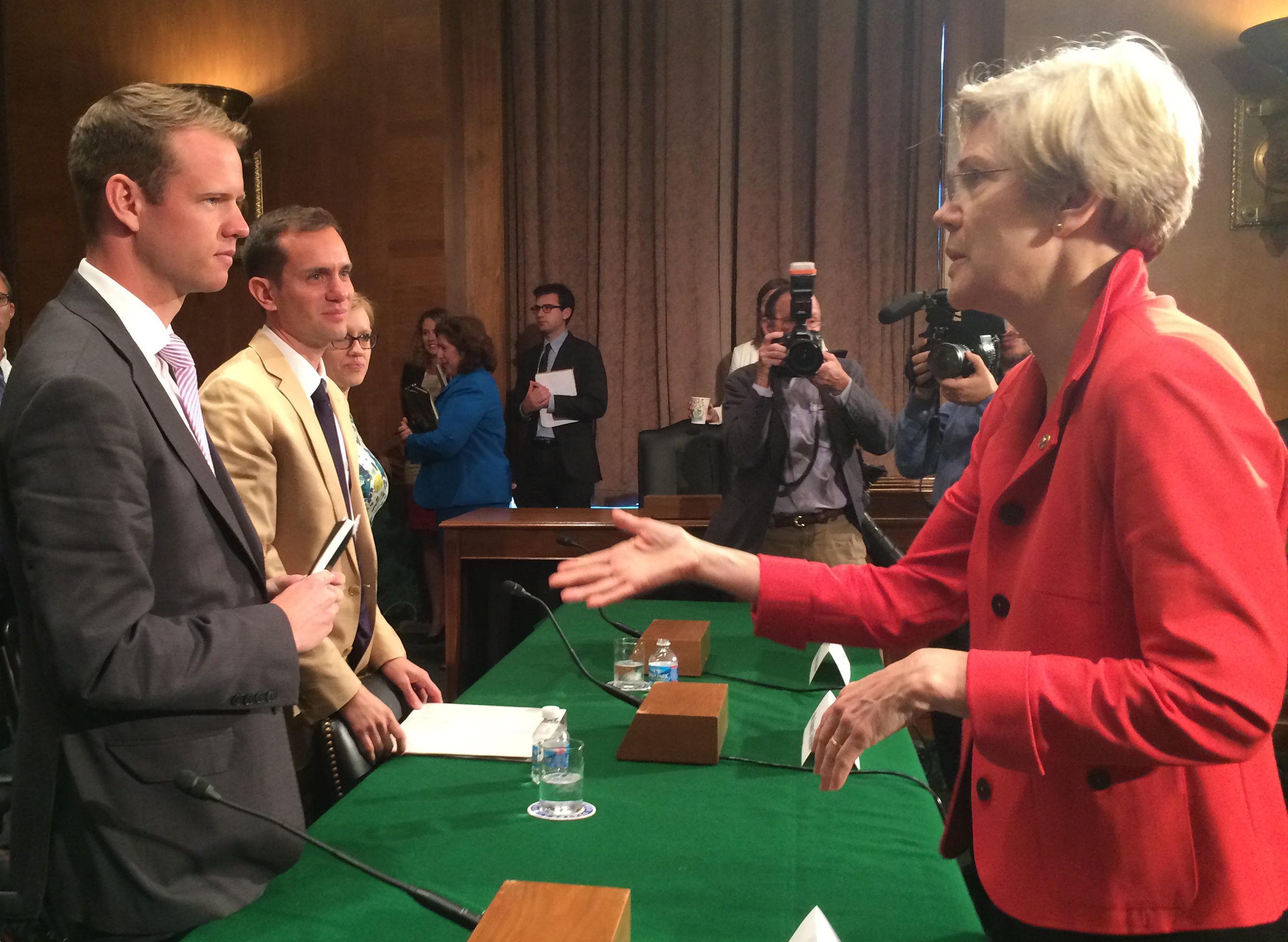WASHINGTON – For many veterans attending college, student debt ultimately will become “one of the largest inhibiting factors” to their long-term career success, a veterans’ advocate told Senate lawmakers Wednesday.
Veterans report difficulty in finding accurate information and also encounter “unnecessary roadblocks” created by loan companies, William Hubbard, a spokesman for Student Veterans of America, told the Senate Finance Committee’s fiscal responsibility and economic growth panel.
A Consumer Financial Protection Bureau report in April found that the top five complaints about student loans, collected from more than 1,300 individuals carrying debt, were all related to miscommunication.
The confusion and lack of transparency around loans is a major issue, said Nancy Hoover, director of financial aid at Denison University in Ohio, who works with students to help them understand and eventually repay student loans.
“Keep it simple,” Hoover said, recommending making loan service providers virtually invisible to borrowers so there is only one point of contact for all information around a student’s loans. For federally-backed loans, that would be the Education Department.
If these changes were made, “a lot of this confusion would be eliminated,” Hoover said.
In 2012, former Defense Secretary Leon Panetta told reporters that 41 percent of service members were dealing with student loan debt.
Among them is Rachel Engler, 33, a nurse anesthetist in Northern Virginia who has been in the Navy for nine years, including tours in Afghanistan.
“Figuring out how to pay for school was really confusing,” Ensler said. “The stress from the finances was, and still is, a lot.”
To pay for a graduate degree in nurse anesthesia at Northeastern University in Boston, Ensler borrowed $60,000 in federal loans.
“You’re taking a financial setback for years in order to continue your education,” she said.
Hubbard, who joined the Marine Corps at 17 and is still in Marine Corps Reserve, said veterans may have student debt outstanding from schooling before service, poor access to information while on active duty, and a limited understanding of the student loan landscape.
His group, the nonprofit Student Veterans of America, has a number of chapters at colleges and universities throughout country that support student vets on a variety of issues.
Misinformation can lead to veterans getting taken advantage of by loan providers. Hubbard noted a recent case in which private loan provider Sallie Mae paid a $60 million dollar settlement for abusive practices related to student loan products.
The infractions, brought to light by a member of the military community, “made me sick,” said Hubbard.
“As they should,” responded Sen. Elizabeth Warren, D-Mass., a subcommittee member who has sponsored legislation to refinance student loans at lower interest rates.
“Federal contracts should involve accountability and oversight protections that require servicers to perform to a high standard,” Warren said.
Sen. Sherrod Brown, D-Ohio, expressed frustration with overly complex loan repayment options that can confuse student veterans. Many of those options, he said, appear “better suited for a contract lawyer than recent graduates. It’s unrealistic at best and cynical at worst.”
Brown is supporting a Student Loan Borrower Bill of Rights, legislation that would provide clearer communication around student loans and offer more flexible repayment options.
Such protections are essential, said Hubbard, if there is an expectation for veterans to stay out of debt, buy homes, start businesses and ultimately invest in the U.S. economy.
“The investment America has made in the GI Bill and its veterans becomes an even clearer asset to our economy when those veterans are powered with the right tools,” said Hubbard.
“By reducing the debt burden on service members and veterans, we can set our veterans up for long-term success.”

